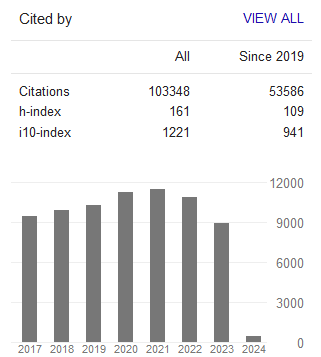The Effect of Value Added Tax on Corporate Cash Flow in Ghana
- Hussein Salia
Abstract
This study investigated whether there is a relationship between value added tax (VAT) and corporate cash flow. In order to conduct the study, corporate entities registered with the Large Tax Payer Unit (LTU) of the Ghana Revenue Authority (GRA) were selected, and data from January 1, 2009, through December 31, 2011, were analyzed. The purpose of this study was to establish if there is a statistically significant relationship between VAT and corporate cash flow. Apart from providing empirical evidence of VAT effect on corporate cash flow, the study was expected to establish the major tax and corporate policy implications to decision makers. This will aid governments in making a choice between VAT and corporate tax—as sufficient literature on the effect of corporate income tax (CIT) on organizational cash flow already exists. The findings clearly suggested that there is a statistically significant difference in cash flow patterns between organizations that pay VAT and entities that do not pay VAT. The study further established that, apart from sales, all other selected independent variables had a negative relationship with VAT. However, the findings contradicted the assertion that the VAT burden is fully borne by only the final consumer.
- Full Text:
 PDF
PDF
- DOI:10.5539/ijbm.v11n7p303
Journal Metrics
Google-based Impact Factor (2023): 0.86
h-index(2023): 152
i10-index(2023): 1168

Index
- Academic Journals Database
- AIDEA list (Italian Academy of Business Administration)
- ANVUR (Italian National Agency for the Evaluation of Universities and Research Institutes)
- Berkeley Library
- CNKI Scholar
- COPAC
- EBSCOhost
- Electronic Journals Library
- Elektronische Zeitschriftenbibliothek (EZB)
- EuroPub Database
- Excellence in Research for Australia (ERA)
- Genamics JournalSeek
- GETIT@YALE (Yale University Library)
- IBZ Online
- JournalTOCs
- Library and Archives Canada
- LOCKSS
- MIAR
- National Library of Australia
- Norwegian Centre for Research Data (NSD)
- PKP Open Archives Harvester
- Publons
- Qualis/CAPES
- RePEc
- ROAD
- Scilit
- SHERPA/RoMEO
- Standard Periodical Directory
- Universe Digital Library
- UoS Library
- WorldCat
- ZBW-German National Library of Economics
Contact
- Stephen LeeEditorial Assistant
- ijbm@ccsenet.org
